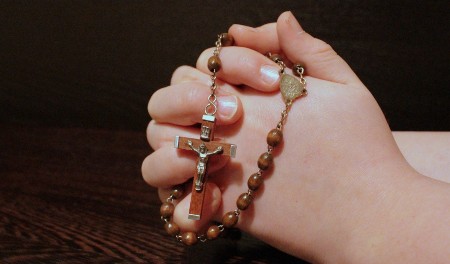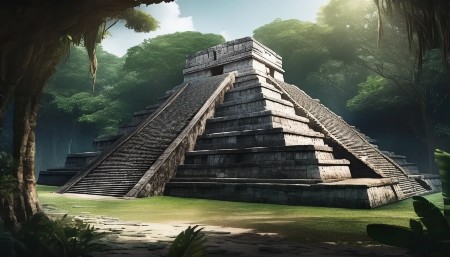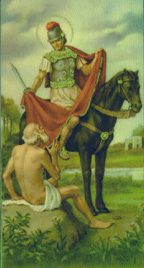 Hi readers, it seems you use Catholic Online a lot; that's great! It's a little awkward to ask, but we need your help. If you have already donated, we sincerely thank you. We're not salespeople, but we depend on donations averaging $14.76 and fewer than 1% of readers give. If you donate just $5.00, the price of your coffee, Catholic Online School could keep thriving. Thank you. Help Now >
Hi readers, it seems you use Catholic Online a lot; that's great! It's a little awkward to ask, but we need your help. If you have already donated, we sincerely thank you. We're not salespeople, but we depend on donations averaging $14.76 and fewer than 1% of readers give. If you donate just $5.00, the price of your coffee, Catholic Online School could keep thriving. Thank you. Help Now >
Bernard Jungmann
FREE Catholic Classes
A dogmatic theologian and ecclesiastical historian, born at Münster in Westphalia, 1 March, 1833; died at Louvain, 12 Jan., 1895. He belonged to an intensely Catholic family of Westphalia ; like him, two of his brothers entered the service of the Church, one joining the Society of Jesus and the other becoming a missionary in the United States. After finishing his studies with brilliant success at the public schools of his native town, he entered the German College at Rome through the mediation of the bishop's secretary, afterwards Cardinal Melchers, and made his philosophical and theological studies in the Gregorian College. In 1854 he received the degree of Doctor of Philosophy ; he was ordained priest in Rome on 8 June, 1857, and two years later received the degree of Doctor of Theology. He then returned to Germany, and worked for a short time as chaplain in the church of St. Adelgunde at Emmerich. Bishop Malou of Bruges, who chanced to be present in Rome in 1854 when Jungmann made his public defence of the philosophical theses, called him in September, 1861, to the chair of philosophy in the Petit Séminaire at Roulers. Four years later (1865) he became professor of theology in the ecclesiastical seminary at Bruges. Even at Roulers, while performing his duties as teacher, he began that literary activity, which was thenceforth ever associated with his professorial duties. His appointment to the chair of ecclesiastical history at Louvain, in succession to Wouters, opened in 1871 a wider field for his great ability. A keen intellect with powers of clear exposition, joined to the spirited delivery which distinguished his lectures, ensured him great success. He enlarged the field of ecclesiastico-historical studies by delivering special lectures on patrology, and establishing in 1890 a seminary for ecclesiastical history, in which students were to receive a scientific and methodical training in original historical research.
Jungmann remained to the end of his life a professor at Louvain, declining the honour of a call to be professor of dogmatic theology in the newly founded Catholic University at Washington. He was seized with a fit of apoplexy at the burial of a colleague, and died at Louvain in 1895. His activity as a writer was equal to his energy as a lecturer. As professor of philosophy he wrote "Demonstratio christiana. I. Demonstrationis christianæ præambula philosophica" (Roulers, 1864; 2nd ed., 1867). In the domain of theology he wrote his "Institutiones theologiæ dogmaticæ specialis" in five tracts, widely used and much appreciated for their clear style: "De Gratia" (Bruges, 1866; 5th ed., Ratisbon, 1882); "De Deo uno et trino" (Bruges, 1867; 4th ed., Ratisbon, 1882); "De Deo Creatore" (Bruges, 1868; 4th ed., Ratisbon, 1883); "De Verbo incarnato" (Bruges, 1869; 4th ed., Ratisbon, 1884); "De quattuor novissimis" (Ratisbon, 1871; 3rd ed., 1885). He wrote also the "Institutiones theologiæ dogmaticæ generalis" (Bruges, 1871; 4th ed., Ratisbon, 1886). In church history he first re-edited Wouter's "Historiæ ecclesiasticæ compendium" (3 vols., Louvain, 1879), and later published special studies, particularly on theological controversies and on the papacy : "Dissertationes selectæ in historiam ecclesiasticam" (5 vols., Ratisbon, 1880). In patrology he issued Fessler's excellent "Institutiones Patrologiæ" in a new and much enlarged edition (2 vols., Innsbruck, 1890, 1892, 1896). He contributed numerous articles to German and French journals, particularly worthy of mention being: "Die neue französische Fortschrittsphilosophie" in the "Katholik" (Mainz, 1865); "Die hl. Märtyrer von Gorkum", ibid. (1867); "Clemens V. und die Aufhebung des Templerordens" in the "Zeitschrift für kath. Theologie" (Innsbruck, 1881); "Le caractère moral de Luther" in "La Controverse" (1883).
Join the Movement
When you sign up below, you don't just join an email list - you're joining an entire movement for Free world class Catholic education.
-

-
Mysteries of the Rosary
-
St. Faustina Kowalska
-
Litany of the Blessed Virgin Mary
-
Saint of the Day for Wednesday, Oct 4th, 2023
-
Popular Saints
-
St. Francis of Assisi
-
Bible
-
Female / Women Saints
-
7 Morning Prayers you need to get your day started with God
-
Litany of the Blessed Virgin Mary
The Power of the Rosary: Why Praying the Rosary Matters for Catholics
-

Lasers Reveal Hidden Mayan City of Valeriana with 6,500 Structures in Mexico
-

Embracing Peace and Unity in a Time of Division
-
The 'Black Legend': Historian Argues Anti-Catholic Bias in Spanish Conquest Narratives
-
This Catholic Hero Who Fought Against Communism Should Be Released Immediately
Daily Catholic
 Daily Readings for Monday, November 11, 2024
Daily Readings for Monday, November 11, 2024 St. Martin of Tours: Saint of the Day for Monday, November 11, 2024
St. Martin of Tours: Saint of the Day for Monday, November 11, 2024 Prayer for Deceased Veterans: Prayer of the Day for Monday, November 11, 2024
Prayer for Deceased Veterans: Prayer of the Day for Monday, November 11, 2024- Daily Readings for Sunday, November 10, 2024
- St. Leo the Great: Saint of the Day for Sunday, November 10, 2024
- Evening Prayers: Prayer of the Day for Saturday, November 09, 2024
![]()
Copyright 2024 Catholic Online. All materials contained on this site, whether written, audible or visual are the exclusive property of Catholic Online and are protected under U.S. and International copyright laws, © Copyright 2024 Catholic Online. Any unauthorized use, without prior written consent of Catholic Online is strictly forbidden and prohibited.
Catholic Online is a Project of Your Catholic Voice Foundation, a Not-for-Profit Corporation. Your Catholic Voice Foundation has been granted a recognition of tax exemption under Section 501(c)(3) of the Internal Revenue Code. Federal Tax Identification Number: 81-0596847. Your gift is tax-deductible as allowed by law.






 Daily Readings for Monday, November 11, 2024
Daily Readings for Monday, November 11, 2024 St. Martin of Tours: Saint of the Day for Monday, November 11, 2024
St. Martin of Tours: Saint of the Day for Monday, November 11, 2024 Prayer for Deceased Veterans: Prayer of the Day for Monday, November 11, 2024
Prayer for Deceased Veterans: Prayer of the Day for Monday, November 11, 2024

